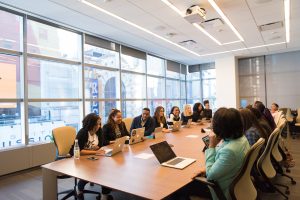01 Jul Consultation Improves Government Decisions

Dear Here to Help,
Someone told me recently that government is meant to consult the community before it makes big decisions. How did I never know this? How does this work? How do I become involved?
And why do some of government’s decisions still so… well weird? Surely, if government talks to us, they should get things right?
Government consultation is a passion of mine. While living in Luxembourg, I was invited to write a chapter in the IFA’s annual publication – I called it “making good tax law – the role of public consultation”. In government, I managed the Board of Taxation’s review of government community consultation practices.
While researching the book chapter, I spoke to various government officials in Europe, to find out how they conducted public consultation. One response I will never forget was some German officials, who, deadpan, told me “we pay tax too, and we are involved in the process, so we understand what it’s like to be a taxpayer.” The corners of my mouth started turning up – surely this was a joke. But their eyes told me no – they were completely serious!
It’s hard to find the right balance in public consultation. The less turnover an individual, company or not-for-profit has, the harder to obtain their feedback into public policy (which is the technical term for government decision-making). Big business and wealthy individuals tend to better resource government relations. Inevitably, this means that government hears the bigger end of town’s views frequently, and the views of the smaller end of town are not as well represented in government decisions. I used to regularly ask how the proposed public policy would impact the smaller end of town. However, the responses were generally unconvincing.
While working for government, I was responsible for a complex technical corporate legal amendment. Numerous pieces of legislation interacted and I had done a lot of research into them. I wanted to be sure that our proposed amendment would not result in unintended interactions with other laws. At the confidential public consultation, I asked attendees to please double check that particular provision and let me know if there were any issues. They assured me that our proposed amendment was fine. However, on the day the Bill was introduced to Parliament, there was a prominent article in the paper saying “we told government this wouldn’t work.”
You can imagine that upset me! Indeed, the current pwc media shows how the consultation process can go awry.
Hopefully, that helps explain why and how government decisions do make mistakes and also why government might not consult as often as we might like.
To be heard, there are a number of options:
• if you know what area of public policy interests you, you can sign up on the department’s consultation website, eg https://www.ato.gov.au/general/consultation/;
• if there is not a current consultation that interests you, some departments have a policy feedback form or emails address;
• there is also the option of approaching your local member of Parliament.
This article comes from my column entitled “Here to Help” in Hunter Local, July 2023. If you have an everyday problem just begging for a simple, real world solution, send it to “Here to Help” and let’s see what we can achieve.
Elaine Abery has a closet full of great ideas and empowering solutions. She’s also the Director of Unravelling Red Tape, a company dedicated to helping everyday people, not-for-profits and companies change the world through improved decision-making and legislation.



Sorry, the comment form is closed at this time.